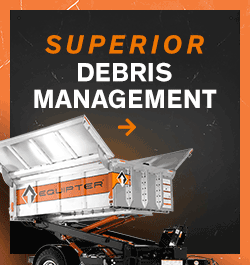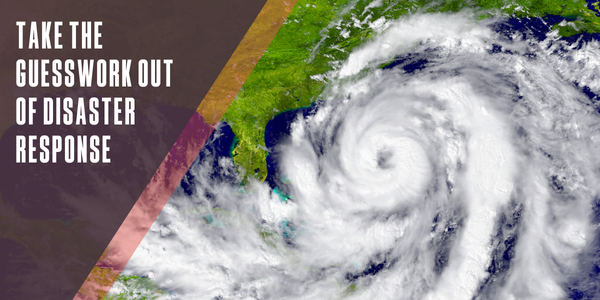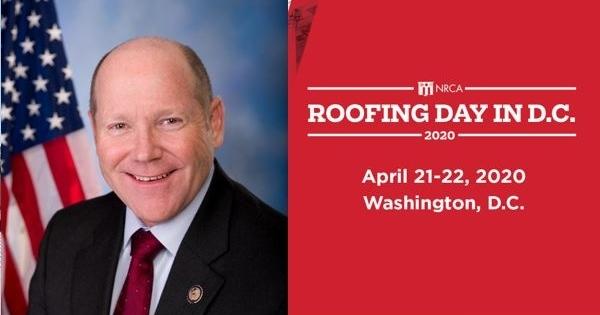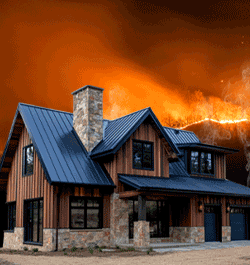Take the guesswork out of disaster response
September 7, 2025 at 9:00 a.m.By Emma Peterson.
By establishing a storm plan, contractors can make hurricane season less stressful for all involved.
Every year, regions bordering the Atlantic Ocean must prepare for hurricane season. Typically lasting five to six months of the year, hurricane season is a period of time where being prepared for natural disasters isn’t just a precaution – it's a necessity for survival. In this episode of Roofing Road Trips®, Chris Kane from Adams and Reese shares what hurricane and storm preparedness should look like for contractors in the region.
Chris has worked in disaster recovery and preparedness for the better part of 20 years now. Operating out of New Orleans, he saw firsthand the devastating impact that storms like Hurricane Katrina can have. Based on his expertise and experience, he shared, “The most effective solution is to do disaster preparedness in advance so that when it does occur, there's a plan in place.” For contractors, this disaster preparedness focuses on protecting job sites, equipment, personnel and future operations.
Secure the site
The first step is to make sure you have a plan for how to best secure the worksite. Chris explained, “Most of the time, there's a window where we know an event is coming within 24 or 48 hours. That’s when you start taking steps. Communicate with your team about how you're going to lock the property down so your tools and equipment are safe, and nothing’s going to be flying and damage the property you’re working on.” A key part of this stage is communication. You need to have a plan for how project leaders at different sites can report back to the office, so you know every active work site that you have is ready.
Protect your people
As you are securing the site, it’s key to keep an eye on the weather forecasts and reports, because at the end of the day, protecting your crew is the most important part of storm preparedness. Chris emphasized, “Communication is critical, particularly in times where you're preparing for a storm. We have really good forecasting today compared to five or seven years ago, but for hurricanes the cone of uncertainty tends to shrink as we get into the 24-to-48-hour period. We're also seeing a lot of storms that pop up and within 36 hours go from thunderstorms to category three hurricanes overnight.”
Because of the unpredictability of storms like these, you have to be proactive in monitoring and making hard calls. Chris gave an example, “Sometimes you’ve got to make a tough call and shut the job down a little early. And obviously there's some expense with lost time in doing so, but it goes back to having a plan in place. And that's the key for me, because then it takes a lot of the guesswork out. If you are in a zone that is under a tropical storm or hurricane watch or warning, that should trigger your plan so you can make the steps necessary to protect the property and your people.”
Document everything
Finally, Chris always recommends documenting your preparation actions and plans. He shared, “If you are anticipating a hurricane, no matter how far inland, make sure you document the condition of the site. There's nothing better than to be able to come back and look at your plans to establish evidence as to what condition you left the property in and how your crew secured it. It's very easy to do. You can use your phone to take photos.” Then, when you return to the site, the first thing you’re going to do is document more. Chris explained, “When we return, we're going to start by documenting and inspecting. It's very critical to do that so you’re make sure the property is in fact safe to return to.”
Not only does this type of documentation keep your company and your crews safe, but it can also help the property owner and other contractors working on the project. Chris elaborated, “It may be used as a basis for an insurance claim, depending on what sort of damage may occur during the storm. But, in general, having documentation is going to speed up everything on the other side of the event in terms of getting back to normalcy, which the goal of disaster preparedness.”
Listen to the entire episode with Chris to learn more about handling the aftermath of a storm.
Learn more about Adams & Reese LLP in their Coffee Shop Directory or visit www.adamsandreese.com.
The information contained in this article is for general educational information only. This information does not constitute legal advice, is not intended to constitute legal advice, nor should it be relied upon as legal advice for your specific factual pattern or situation.

About Emma
Emma Peterson is a writer at The Coffee Shops and AskARoofer™. Raised in the dreary and fantastical Pacific Northwest, she graduated in 2024 from Pacific University in Oregon with a degree in creative writing and minors in graphic design and Chinese language. Between overthinking everything a little bit, including this bio, she enjoys watching movies with friends, attending concerts and trying to cook new recipes.























Comments
Leave a Reply
Have an account? Login to leave a comment!
Sign In